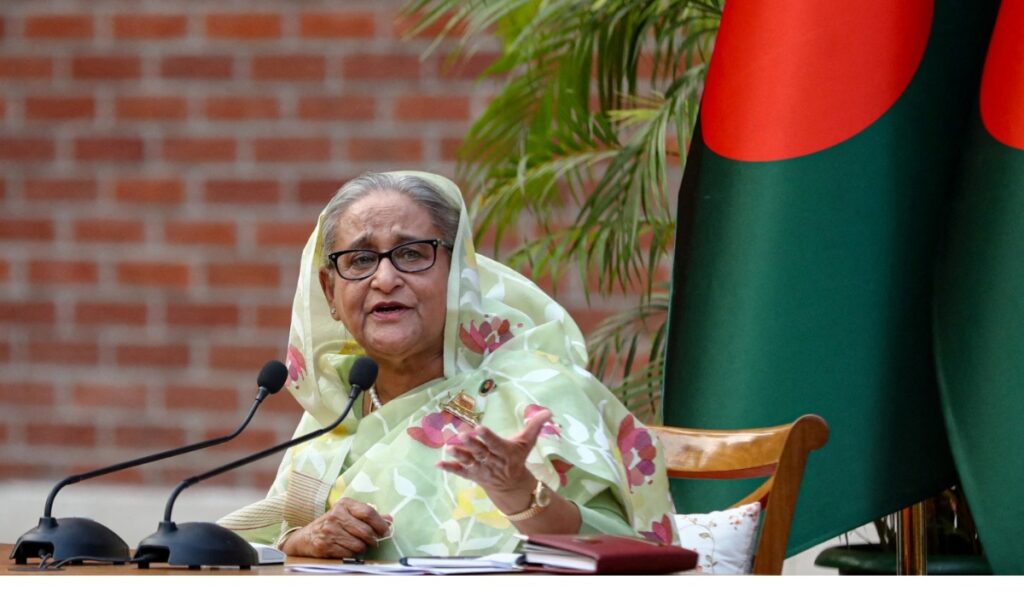Former Bangladesh Prime Minister Sheikh Hasina had planned to address the nation on August 5, accusing the US of attempting to orchestrate a regime change. However, she did not deliver the speech before fleeing.

Sheikh Hasina, who resigned as Bangladesh’s Prime Minister and fled to India on August 5 amid violent student protests, had planned to address the nation but never delivered her speech. In the undelivered address, obtained by India Today, Hasina accused the United States of plotting a regime change in Bangladesh and expressed her intention to address this issue if given the chance.
Currently in India, Sheikh Hasina revealed in a letter that she could have retained power by ceding “Saint Martin and the Bay of Bengal to America.” Saint Martin, the southernmost island of Bangladesh, is situated in the northeastern part of the Bay of Bengal.
In her undelivered speech, the 76-year-old leader said her resignation was intended to avoid witnessing a “procession of dead bodies.” She expressed concern that her continued presence in the country might have resulted in further loss of life and destruction.
“Perhaps if I had stayed, more lives would have been lost and more property destroyed. I chose to leave, resigning for the sake of your safety and strength,” she wrote in her letter.
Sheikh Hasina also clarified her earlier remark referring to “Razakars” during the protests. She stated she never labeled the protesting students as Razakars, a term associated with those who supported the Pakistani military during the Bangladesh liberation war and are viewed negatively in the country.
In July, Hasina had sparked controversy by suggesting that if the grandchildren of freedom fighters did not receive certain benefits, then it would be the “grandchildren of Razakars” who would. This statement incited anger among the students.
Hasina’s letter also mentioned that she plans to return to Bangladesh soon.
Tensions between the US and Bangladesh had significantly worsened during Hasina’s tenure, with Washington criticizing the January elections as neither free nor fair. Prior to her departure, Hasina had alleged conspiracies to overthrow her government and claimed there was a plot to create a new “Christian country” from Bangladesh and Myanmar.
Following her resignation and departure, violence erupted, particularly targeting minorities, including Hindus, with over 230 reported deaths since August 5. Nobel Peace Prize laureate Muhammad Yunus has been appointed as the head of the interim government, recommended by the student protesters who led the movement against Hasina. Yunus will oversee the caretaker government tasked with organizing new elections in Bangladesh.












